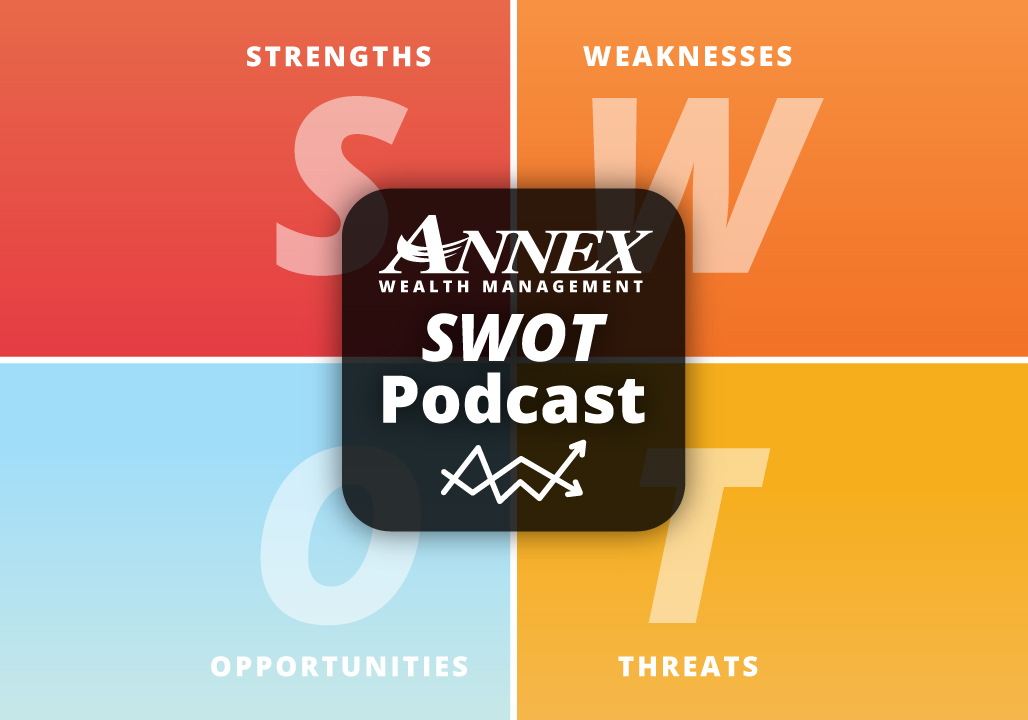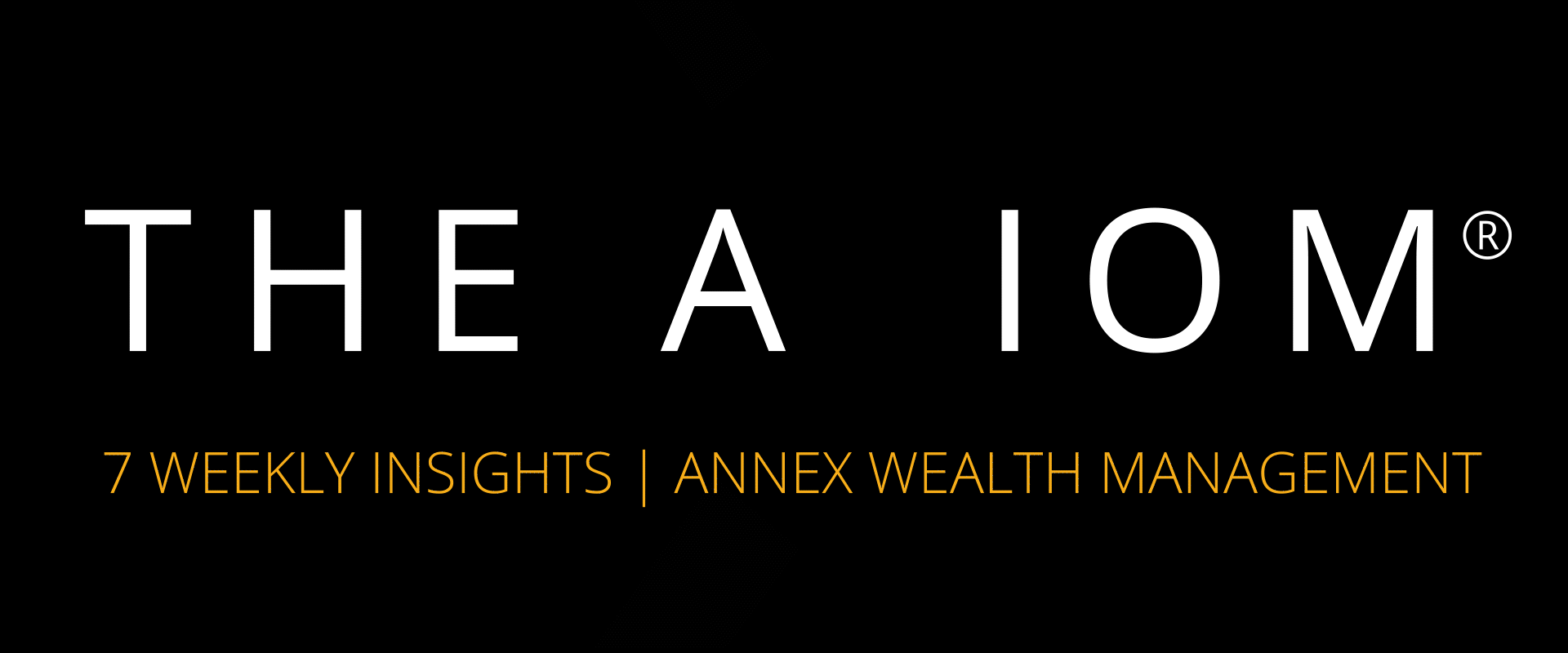
1.
1 | Week In Review
Annex strongly believes in frequent and meaningful communication.
Each Friday after market close, our experts record the “Week In Review”- exclusive insights to help you stay on top of the latest financial news.
The ISM Index seems to indicate a growing service economy, which means the Fed is likely going to stick with higher interest rates for a while. What does a 50+ ISM mean for those predicting an upcoming recession? Annex Wealth Management’s Dave Spano and Derek Felske discuss.
2 |Poll Exclusive
Just how much do you need to retire? How has inflation impacted retirement numbers within one year’s time? Would you take a new job without retirement benefits? Americans weigh in on these questions and more.

Instead of revealing the answers of last week’s poll, we’re going to hit pause and continue celebrating National 401k Day looking at how much you’ll need to retire and inflation’s impact on these numbers. According to a recent survey from Charles Schwab, Americans believe they’ll need around $1.8 million saved for retirement, up from $1.7 million last year and only 37% of Americans believe they’ll reach the goal, a 10% decrease from last year (source). 62% of Americans believe inflation is making it difficult to save for a comfortable retirement, compared to 45% last year and strongly believe inflation is influencing American’s spending and savings habits.
Saving for retirement hasn’t always been a guaranteed option within a benefits package offered to new hires when considering a new job. However, having a 401k plan is now becoming a requirement for candidates seeking new employment. 88% of potential employees reported potential employers offering 401k is a “must-have benefit,” while 3 out of 4 candidates report if a 401k isn’t offered, they’ll turn down a job offer. In addition to having a 401k, retirement savings continues to be a priority with 68% of Americans putting money into a savings account, up from 61% last year, and 47% reported IRA investments, an increase from 33%.
Having $1.8 million dollars in your retirement account may seem overwhelming and above what you’ll need for a comfortable retirement but retiring at 65 and withdrawing 4% of savings each year would translate to about $72,000 annually in retirement income (source). Last year the average retirement account held $113,000, and $233,000 for Americans retirement age, 65 and older.
The gap is alarming between what Americans believe they’ll need and what is in their account at retirement, adding to anxieties fueled by the increase in inflation. The increase in interest rates has made it more expensive to borrow money. Despite these increases and anxieties, Americans report they continue to put around 12% of their pretax income into their 401ks. If you haven’t been very active in your retirement planning, now is your time to make some adjustments and get on track.
The balance of a retirement account can be impacted by factors you can’t control such as inflation and the market. Instead, focus on the percentage of your paycheck you annually contribute to your retirement savings account, keeping in mind the annual and catch-up contribution limits.
If you’ve maxed out your 401k contributions, there are additional ways to save for retirement. Within the last year employee’s confidence in financial decisions with professionals almost doubled from 27% to 49% and 73% said they’d like personal advice on their 401k plan. Be sure to connect with a Wealth Manager to make sure you’re on-track to retire. Finish 2023 Strong. Update Your Plan Now.
BACK TO TOP ↑
3 | Listen To
The Difference Maker Of The Game
Brewers vs. Phillies | September 3, 2023

Click to listen!
Check out the full archive HERE.
BACK TO TOP ↑
4 | MoneyDo
Consider Your Options With Your Old 401(k)
You’ve diligently contributed to your 401(k)-plan account over the years and now you’re retiring or switching to a different job. What should you do with the funds in your 401(k) account? You have four main options: keep the funds in that 401(k) account, roll the funds over to an individual retirement account (IRA), roll the funds into a new 401(k) account, or take a lump sum distribution.
In this week’s MoneyDo, we suggest you consider the pros and cons of each different option so you can make an educated decision for your 401(k) account at your previous employer.
Although taking a lump sum and cashing out the account may be tempting, consider the consequences of choosing this option. Taking the lump sum is a taxable distribution, which can potentially lead to a significant tax event and even trigger additional penalties. It additionally reduces the funds specifically earmarked for your future retirement. Because of the significant financial and tax friction caused by taking a lump sum, cashing out your 401(k) isn’t usually the best option.
Rolling over your 401(k) to an IRA can simplify your financial life by consolidating the funds with other pre-tax dollars you’ve saved. Using this strategy is especially helpful for those who have multiple old 401(k) accounts from previous employers, as it reduces the complexity of having accounts at multiple financial institutions and management by various people, instead allowing you to fold your 401(k)s into one IRA at one financial institution. Consolidating these accounts into a single IRA offers simplicity and eases ongoing management.
Another advantage of a 401(k)-to-IRA rollover is the availability of a broader selection of investment options. 401(k)s are typically limited to a smaller selection of investments chosen by the plan sponsor. These options may range in investment quality and level of expense. Funds moved over to an IRA have many more investment options available.
An IRA also offers flexibility for withdrawals. IRA funds can be withdrawn without penalty after age 59½. If you’re considering a qualified charitable contribution, (QCD), they can be
executed from an IRA upon attainment of age 70½, which could reduce taxable income while helping to achieve charitable giving goals. In contrast, some 401(k)s may have rigid distribution timelines participants must follow and 401(k) funds aren’t eligible for QCDs.
For some, the best option may be to leave your money within a 401(k) plan – either with a current or former employer. There’re several potential advantages to this strategy. First, 401(k)s may allow those who separated from service with their employer after age 55 the ability to withdraw 401(k) funds without any penalty, even if they haven’t attained age 59½ yet. With an IRA, withdrawals prior to age 59½ are subject to a 10% penalty unless special exceptions are met.
Another advantage to keeping funds in your 401(k): you may have access to 401(k) loans, a benefit you won’t get with an IRA. 401(k) assets also provide unlimited protection from creditors, civil lawsuits, or bankruptcy. IRAs don’t always have such protection, depending on the state you live in. If you’ve begun a new job offering a 401(k), you may also be able to roll assets into your new employer’s 401(k) and defer required minimum distributions (RMDs) until retirement.
An IRA doesn’t offer this flexibility, as under current law, IRA RMD’s are required to begin upon attainment of either age 73 or 75 depending on your birth year, regardless of whether you are still working. Those born between 1951-1959 will need to start RMDs at age 73, while those born after 1960 will need to start RMDs at 75.
It’s important to consider your unique circumstances and goals in determining if it’s best to keep your 401(k) with your previous employer or to roll it over to an IRA. Some key items to consider are your account balance, fees, investment options, and the timeline until you wish to make a withdrawal. Talk with your financial advisor to review the pros and cons of each option for your situation.
BACK TO TOP ↑
5 |Ask Annex
Keeping Gifts Secret | HYSA | HSA For COBRA? | Leftover In 529 | Is The Dollar Vanishing?
6 | What’s Playing
Couples with significant differences in ages- 8 or 10 years or more- are likely to find themselves at odds when they’re on the cusp of a retirement decision, and then throughout their golden years.
Join Annex Wealth Management’s Amy Bremmer, MBA, CFP®, as she shares four steps to navigating the potentially rough waters of retirement planning with an age gap to ensure as a couple, you Refresh Your Financial Future. Calibrate Your Financial Plan.
BACK TO TOP ↑
7 | Quote of the Week

This week we celebrate National 401(k) Day! Use this reminder to review your strategies and make sure they align with your future goals. It’s not too late or too early to start planning for your future now.
BACK TO TOP ↑
| Annex In Action
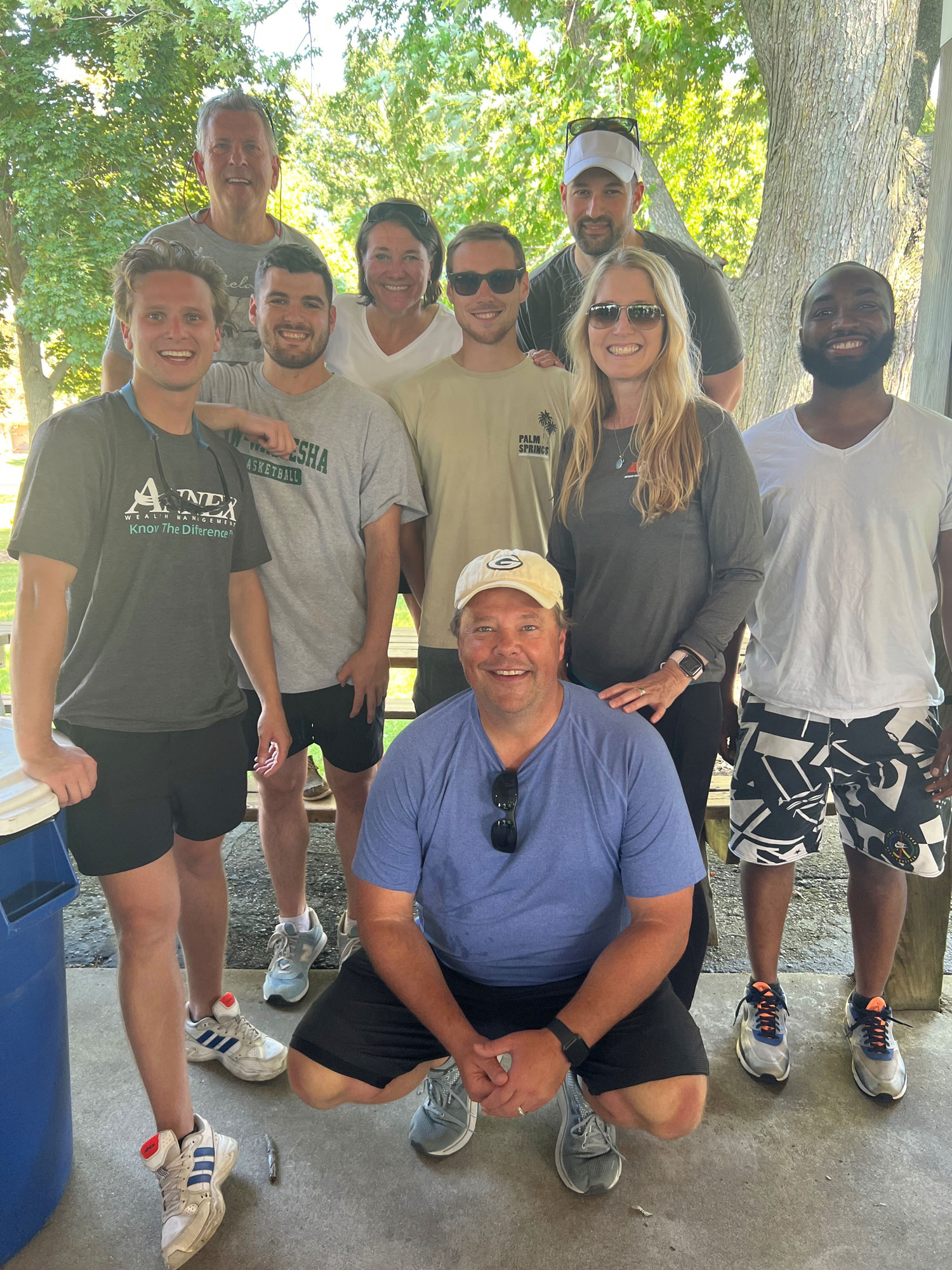
Employees of Annex Wealth Management gathered in Jefferson County, WI for a 20-mile bike ride centered around raising money for local charities.
Beyond Design Bike Tour was a weekday bike ride started 18 years ago to emphasize team building and networking between partners, clients and friends focusing on the mission to improve the quality of life for people in the communities we live and work.
| Events & Webinars

Join us Tuesday evening for our upcoming event at our Elm Grove office: Are Annuities Worth It?
Annuities are one of civilization’s oldest financial instruments. But what are they, and do their benefits outweigh their pitfalls? Annex Financial Planners discuss if and when an annuity might make sense – and potential dangers of annuity ownership.

Join us every Third Thursday for an interactive presentation where we will be discussing key financial topics.
Annuities are one of civilization’s oldest financial instruments. But what are they, and do their benefits outweigh their pitfalls? Annex Financial Planners discuss if and when an annuity might make sense – and potential dangers of annuity ownership.
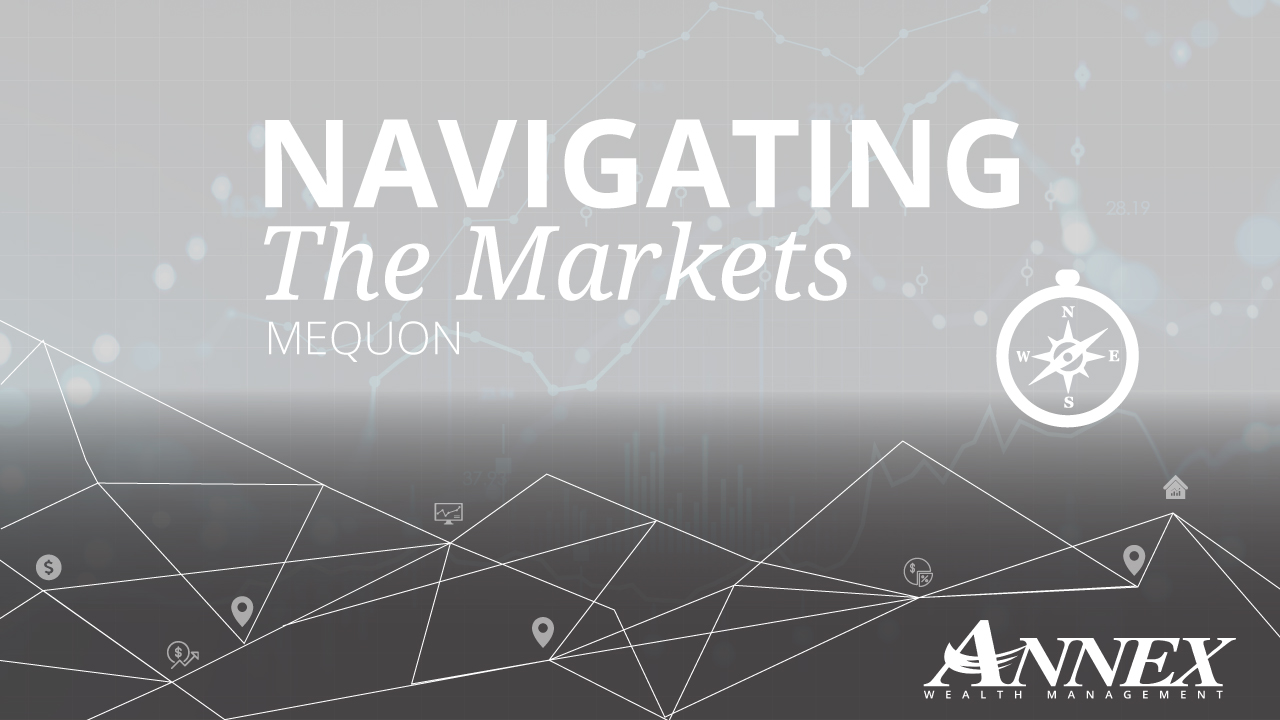
6:00-7:30 PM CT @ Concordia University Wisconsin – 12800 N Lake Shore Dr, Mequon, WI 53097
Annex Wealth Management’s “Navigating The Markets” is an interactive presentation focused on providing information and insight on today’s economy.
Join Annex Wealth Management’s Brian Jacobsen and Dave Spano as they walk you through where we are and where the Annex Investment Team believes we’re headed.
In addition to taking your questions, Brian and Dave will discuss:
• Headwinds for the economy and markets
• Whether the long-awaited recession will ever happen
• The historical significance of today’s economy
• What you can do to calibrate your portfolio
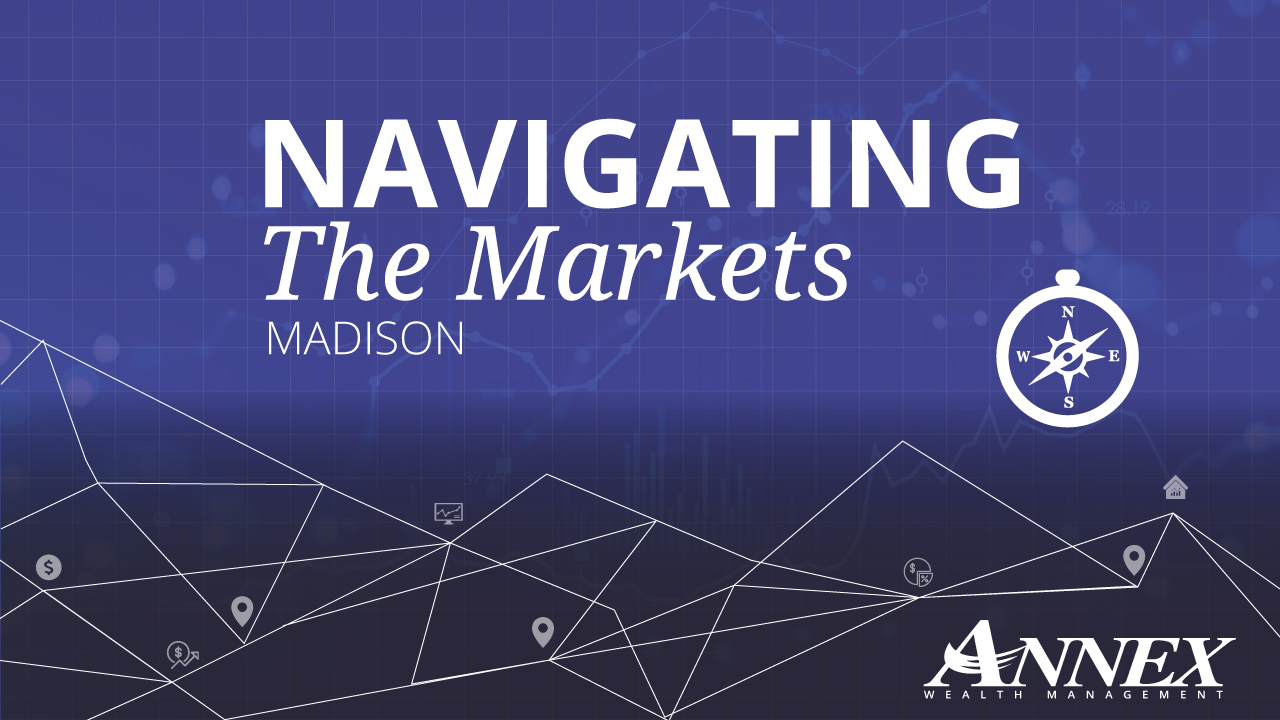
6:00-7:30 PM CT @ Madison Marriott West – 1313 John Q Hammons Dr, Middleton, WI 53562
Annex Wealth Management’s “Navigating The Markets” is an interactive presentation focused on providing information and insight on today’s economy.
Join Annex Wealth Management’s Brian Jacobsen and Mark Pent as they walk you through where we are and where the Annex Investment Team believes we’re headed.
In addition to taking your questions, Brian and Mark will discuss:
-
-
- Headwinds for the economy and markets
- Whether the long-awaited recession will ever happen
- The historical significance of today’s economy
- What you can do to calibrate your portfolio
-
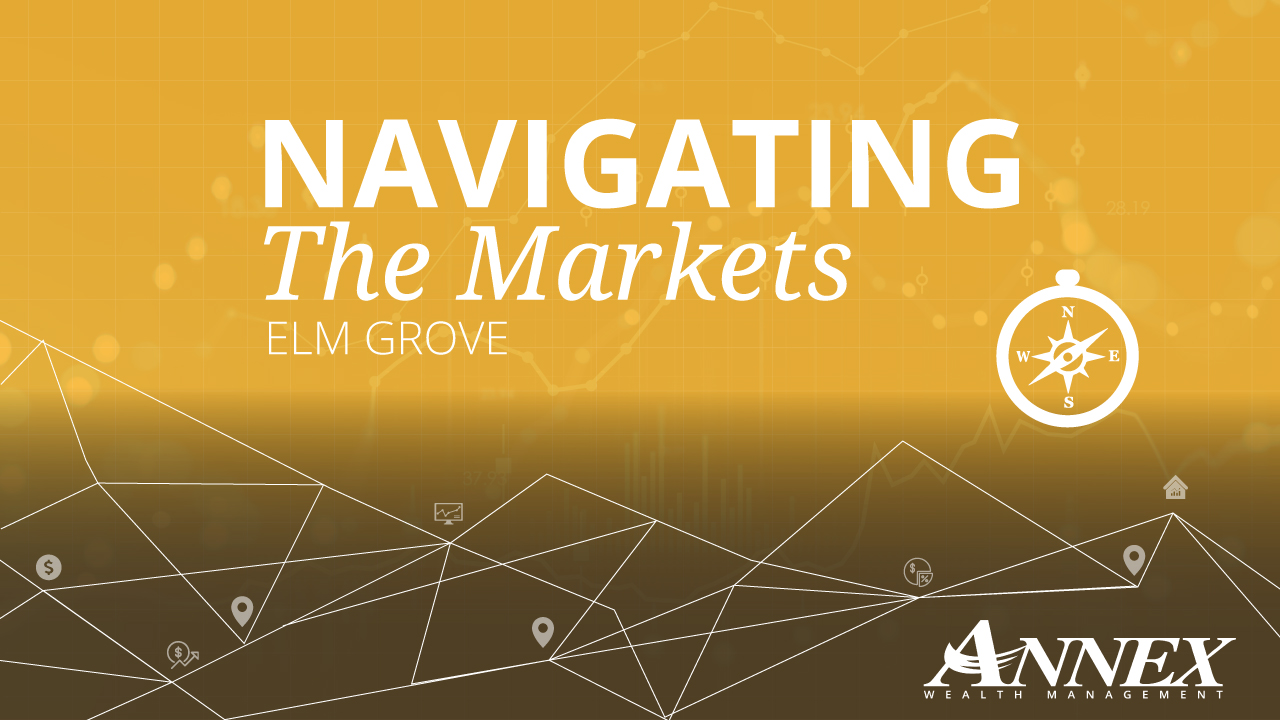
6:00-7:30 PM CT @ Sharon Lynne Wilson Center for the Arts – 3270 Mitchell Park Dr, Brookfield, WI 53045
Annex Wealth Management’s “Navigating The Markets” is an interactive presentation focused on providing information and insight on today’s economy.
Join Annex Wealth Management’s Brian Jacobsen and Dave Spano as they walk you through where we are and where the Annex Investment Team believes we’re headed.
In addition to taking your questions, Brian and Dave will discuss:
-
-
- Headwinds for the economy and markets
- Whether the long-awaited recession will ever happen
- The historical significance of today’s economy
- What you can do to calibrate your portfolio
-
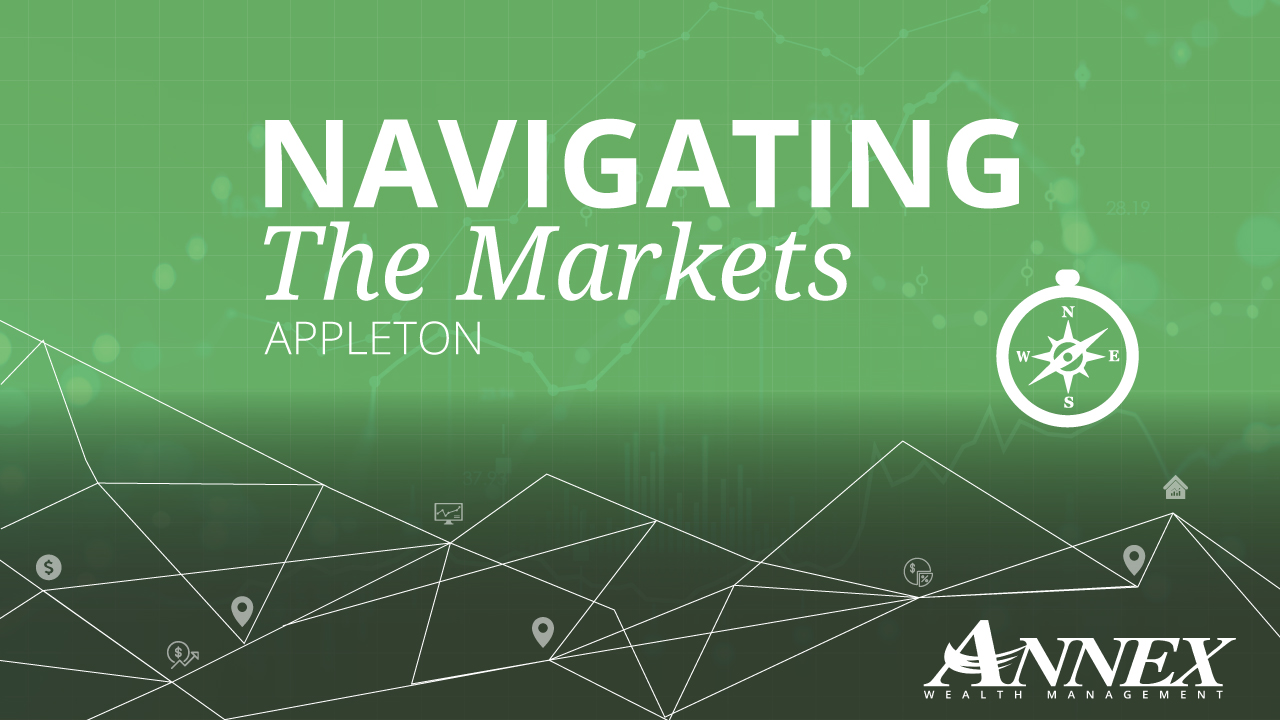
5:00-6:30 PM CT @ Fox Cities Performing Arts Center – 400 W College Ave, Appleton, WI 54911
Annex Wealth Management’s “Navigating The Markets” is an interactive presentation focused on providing information and insight on today’s economy.
Join Annex Wealth Management’s Brian Jacobsen and Jeff Daye as they walk you through where we are and where the Annex Investment Team believes we’re headed.
In addition to taking your questions, Brian and Jeff will discuss:
-
-
- Headwinds for the economy and markets
- Whether the long-awaited recession will ever happen
- The historical significance of today’s economy
- What you can do to calibrate your portfolio
-

WHY WE WALK
Thank you for helping us reach our fundraising goal! Together we can make a difference in the lives of those affected by ALS. Our team is committed to raising money to support people in our community with ALS and spread awareness of the urgency to find treatments and a cure. Please consider joining our team in the Walk to Defeat ALS® or choose a team member from the list and donate to our cause.
WHY WE NEED YOUR HELP
Every 90 minutes a person in this country is diagnosed with ALS and every 90 minutes another person will lose their battle against this disease. ALS occurs throughout the world with no racial, ethnic, or socioeconomic boundaries.
That’s why we’re participating in the Walk to Defeat ALS. To bring hope. To raise awareness. To provide resources and services to families free of charge. To help unlock the mystery of ALS and find the key to treatments a cure. Will you join us?
ABOUT ALS
Amyotrophic lateral sclerosis (ALS) is a progressive, fatal neuromuscular disease that slowly robs the body of its ability to walk, speak, swallow and breathe. The life expectancy of a person with ALS averages 2 to 5 years from the time of diagnosis.
ALS can strike anyone. Presently there is no known cause of the disease, yet it still costs loved ones an average of $250,000 a year to provide the care people living with ALS and their families need. Join the movement to provide help and hope today!
BROWSE EVENTS →
